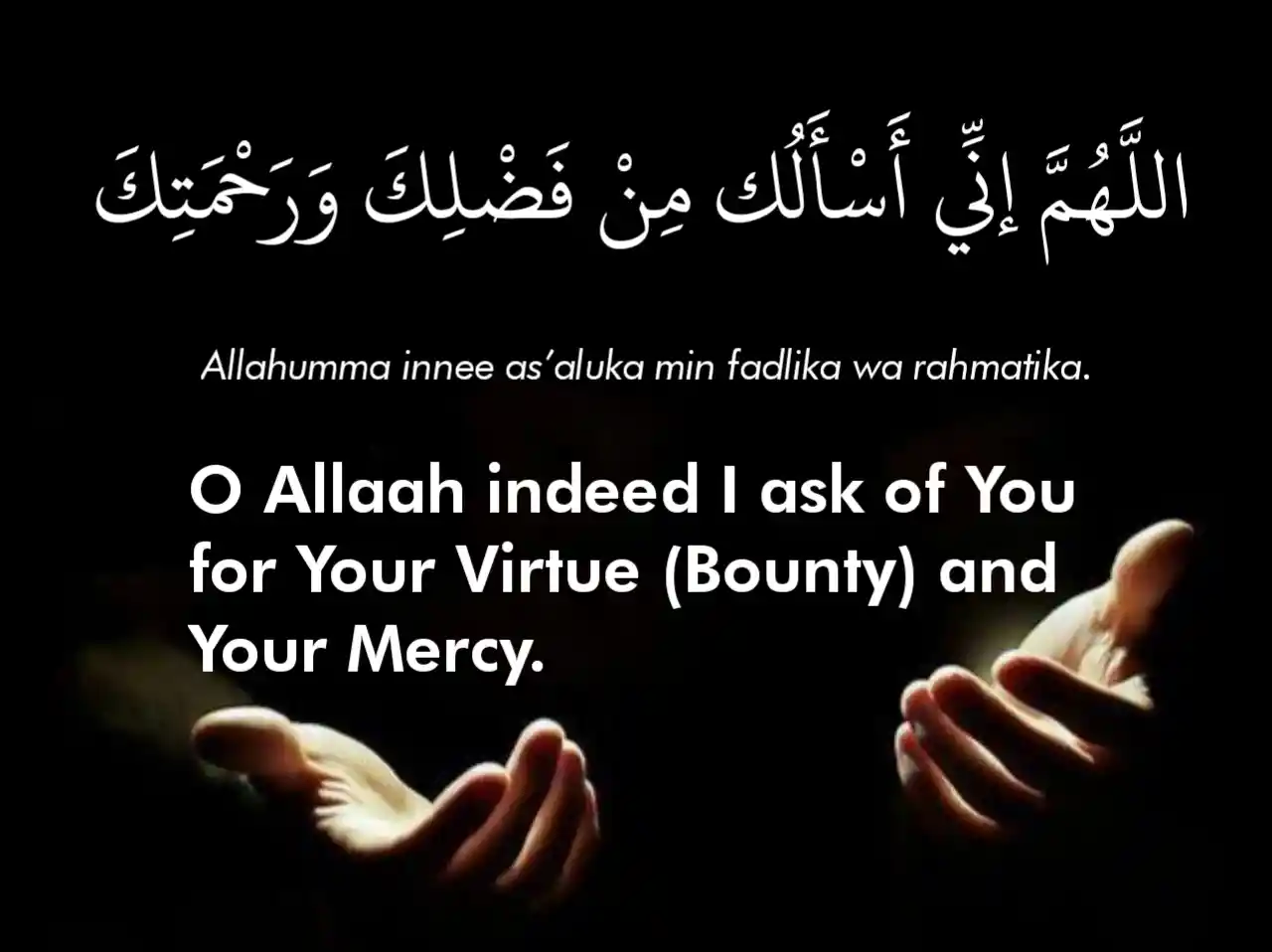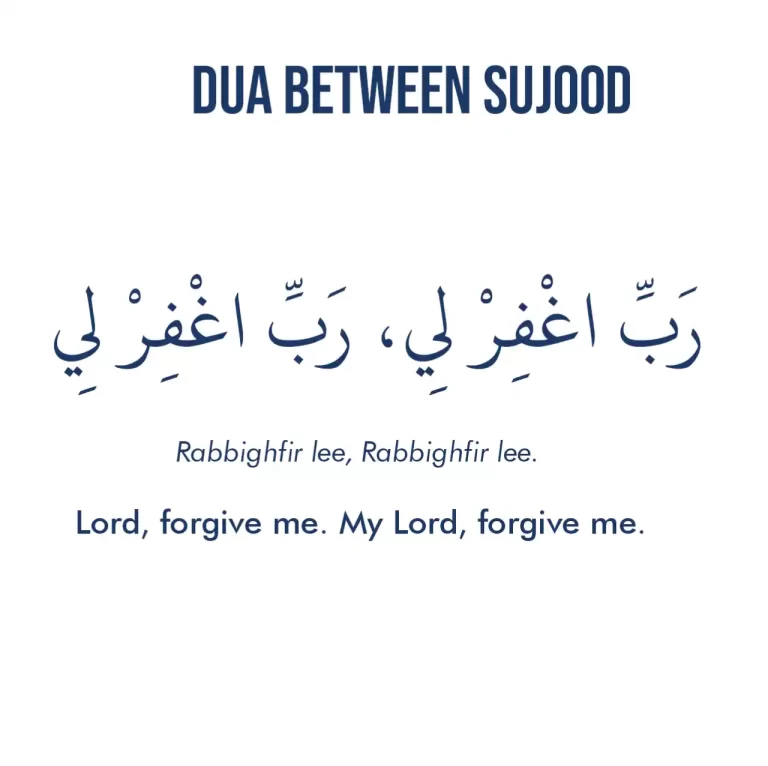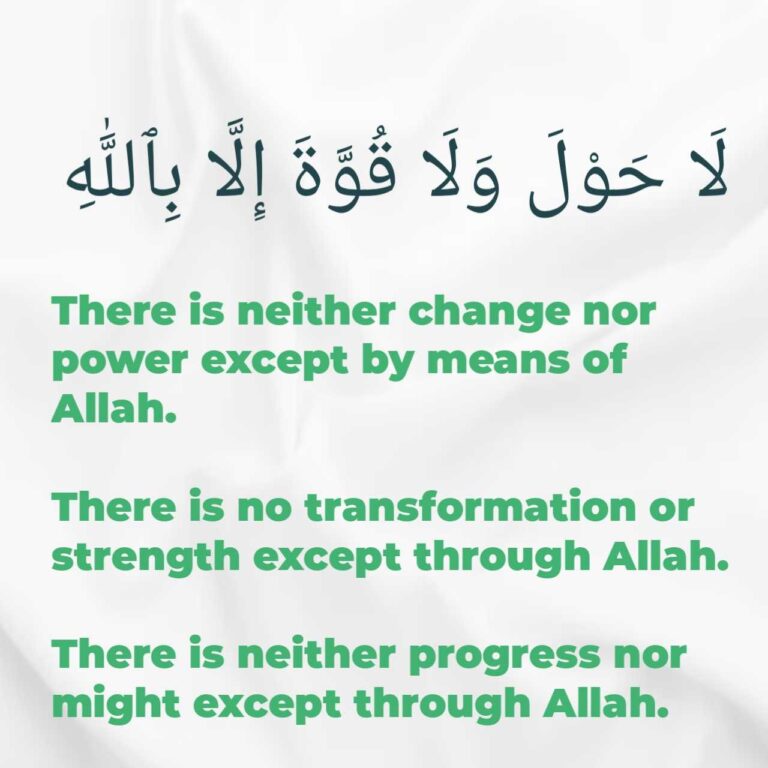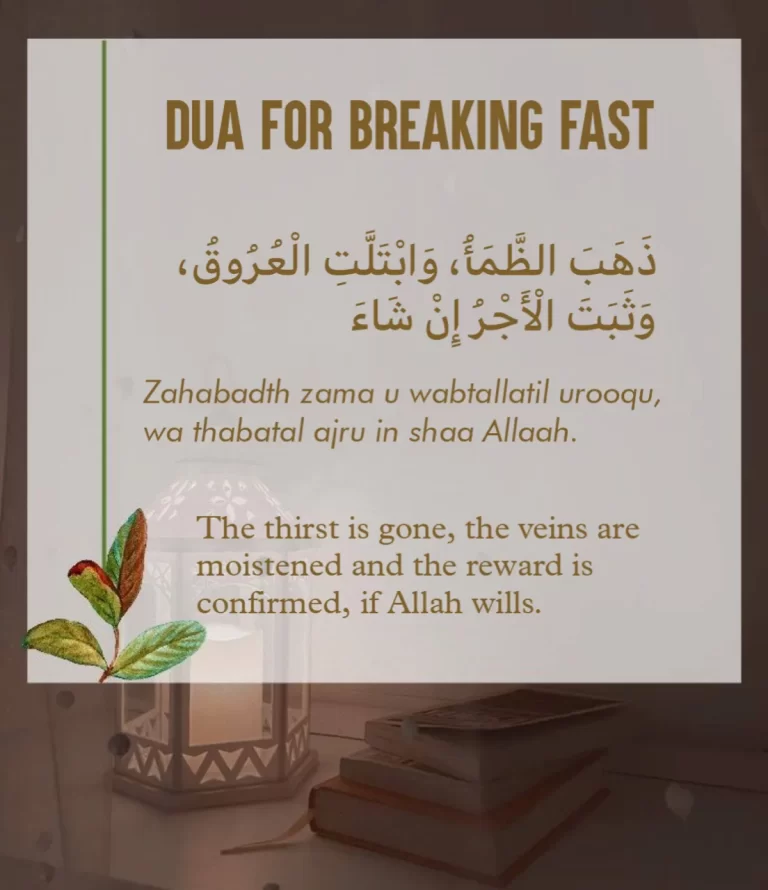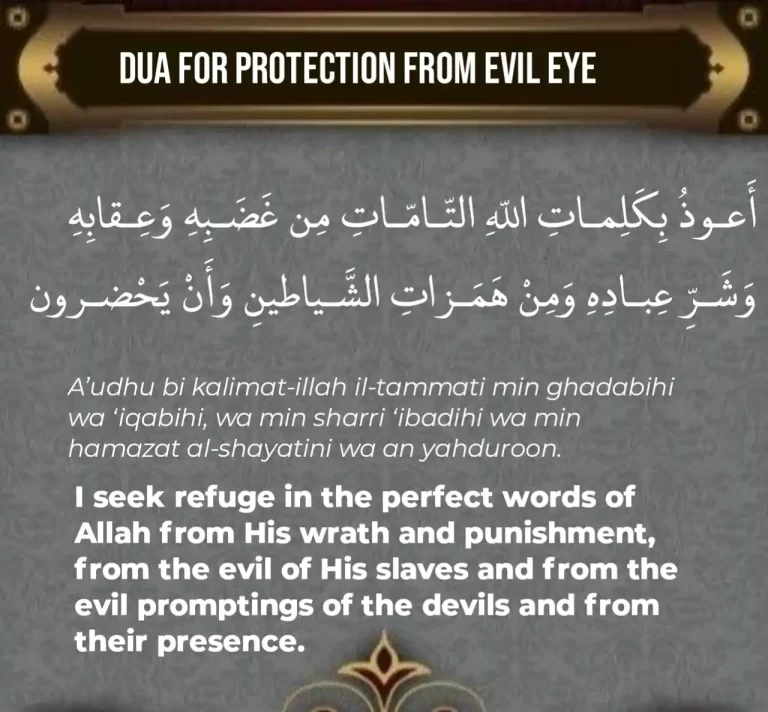Ramadan Dua For First 10 Days in Arabic With Their English Meaning
Advertisements
Ramadan, the holy month of fasting, is a time of spiritual reflection and increased worship for Muslims around the world. All the days of Ramadan are special, as they are believed to be a time of great blessings and rewards.
During these days, Muslims make a conscious effort to increase their religious observance, including the recitation of Quran and supplications known as “duas.”
But, Is there any special Ramadan Dua For First 10 Days? In this blog, we will explore the significance of the days of Ramadan and provide a collection of powerful duas to help you make the most of this blessed period.
Is There Any Ramadan Dua For First 10 Days?
There is no specific dua for each day and night of Ramadan. The entire month of Ramadan is mercy from Allah; the entire month is also forgiveness and ransom from the Fire.
None of these blessings is restricted to any one part of the month to the exclusion of any other part, and this is a reflection of the vastness of Allah’s mercy.
Advertisements
“Supplication (dua) is worship,” as the Prophet (blessings and peace of Allah be upon him) said; narrated by at-Tirmidhi and others with a saheeh isnaad.
The basic principle with regard to acts of worship is tawqeef (i.e., it is not permissible to worship Allah, through any act of worship unless this act of worship is proven in the shar‘i texts (Qur’aan and Sunnah) to be an act of worship that was prescribed by Allah) and disallowance (of anything that is not expressly prescribed).
Therefore it is not permissible to invent acts of worship or to limit them to a particular time or occasion, unless the Islamic teachings indicate that.
So it is not permissible for anyone to prescribe for the people supplications to be said at specific times.
Supplication (dua) during Ramadan is encouraged, but this encouragement does not make it permissible for anyone to make up supplications by himself and say that they are to be recited at specific times, as if they are Prophetic supplications.
Advertisements
Rather the Muslim may offer supplication for whatever he likes of good in this world and in the Hereafter, in whatever words are easy for him, at any time.
Singling out the first third of Ramadan to pray for mercy, the second third to pray for forgiveness and the last third to pray for ransom from Hell is an innovation for which there is no basis in Islamic teachings.
There is also no justification for singling out these times for these supplications, because all the days of Ramadan are equal in that regard.
Rather the Muslim may pray for whatever he wants of goodness in this world and the hereafter throughout Ramadan; that includes asking Allah for mercy, forgiveness, ransom from the Fire and admission to Paradise.
- RECOMMENDED READING: Dua for Sleeping In Arabic, Transliteration And Meaning
You should offer a great deal of du‘aa’, asking for goodness and mercy, especially in this month, making the most of this time of goodness and blessing (barakah), seeking the mercy and forgiveness of your Lord, may He be exalted.
Allah, may He be exalted, says (interpretation of the meaning):
“And when My slaves ask you (O Muhammad blessings and peace of Allah be upon him) concerning Me, then (answer them), I am indeed near (to them by My Knowledge). I respond to the invocations of the supplicant when he calls on Me (without any mediator or intercessor). So let them obey Me and believe in Me, so that they may be led aright”.
Surah al-Baqarah 2:186
Ibn Katheer (may Allah have mercy on him) said:
The fact that Allah, may He be exalted, mentions this verse, which encourages one to offer du‘aa’, in the midst of the verses that speak of the rulings on fasting, indicates that one should strive hard in offering du‘aa’ at the end of the fast and, indeed, every time one breaks the fast.
End quote from Tafseer Ibn Katheer (1/509)
It is good for the one who offers du‘aa’ to follow proper etiquette and to recite many of the du‘aa’s that have been narrated from the Prophet (blessings and peace of Allah be upon him), and not to overstep the mark in offering du‘aa’.
You should observe the etiquette of du‘aa’ and recite often the du‘aa’s that it is recommended to recite a great deal in Ramadan and also at times other than Ramadan. These include the following:
1. Dua
رَبَّنَآ ءَاتِنَا فِى ٱلدُّنۡيَا حَسَنَةً وَفِى ٱلۡأٓخِرَةِ حَسَنَةً وَقِنَا عَذَابَ ٱلنَّارِ
Transliteration
Rabbana aatina fi’l-dunya hasanah wa fi’l-aakhirah hasanah wa qina ‘adhaab al-naar.
Meaning
Our Lord, give us that which is good in this world and that which is good in the Hereafter, and protect us from the torment of the Fire.

2. Dua
رَبَّنَا هَبۡ لَنَا مِنۡ أَزۡوَٰجِنَا وَذُرِّيَّٰتِنَا قُرَّةَ أَعۡيُنٍ وَٱجۡعَلۡنَا لِلۡمُتَّقِينَ إِمَامًا
Transliteration
Rabbana hab lana min azwaajina wa dhurriyyaatina qurrata a‘yunin waj‘alna lil-muttaqeena imaama
Meaning
Our Lord! Bestow on us from our wives and our offspring who will be the comfort of our eyes, and make us leaders for the Muttaqoon (the pious)
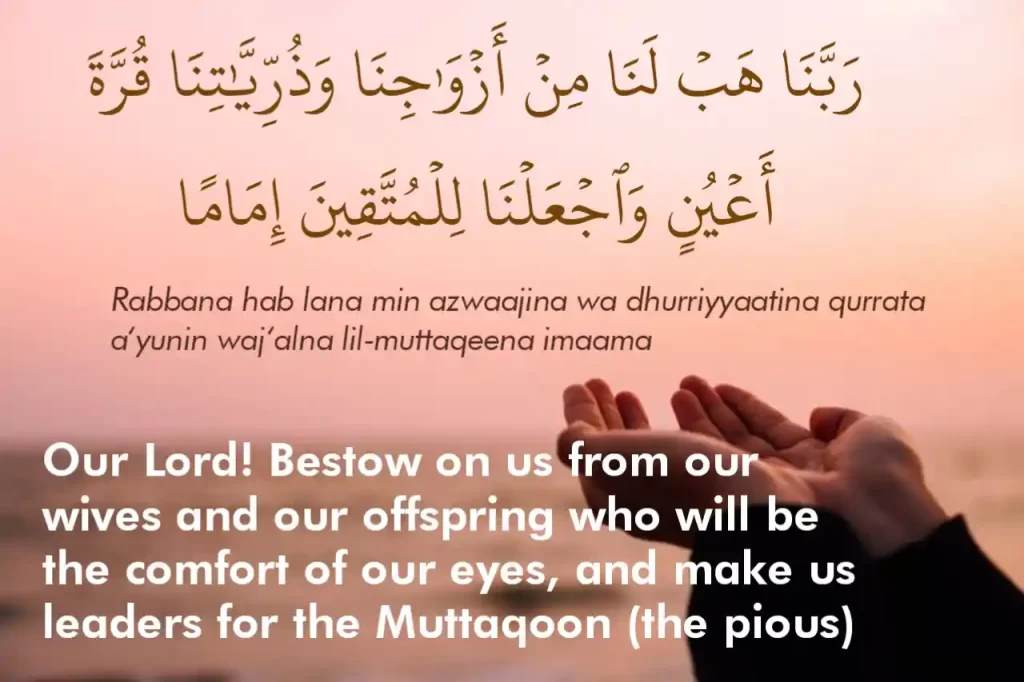
3. Dua
رَبِّ ٱجۡعَلۡنِى مُقِيمَ ٱلصَّلَوٰةِ وَمِن ذُرِّيَّتِىۚ رَبَّنَا وَتَقَبَّلۡ دُعَآءِ * رَبَّنَا ٱغۡفِرۡ لِى وَلِوَٰلِدَىَّ وَلِلۡمُؤۡمِنِينَ يَوۡمَ يَقُومُ ٱلۡحِسَابُ
Transliteration
Rabb ij‘alni muqeema as-salaati wa min dhurriyyati Rabbana wa taqabbal du‘aa’. Rabbana ighfir li wa li waalidayya wa lil-mu’mineena yawma yaqoom ul-hisaab
Meaning
O my Lord! Make me one who performs As-Salat (Iqamat-as-Salat), and (also) from my offspring, our Lord! And accept my invocation. Our Lord! Forgive me and my parents, and (all) the believers on the Day when the reckoning will be established.
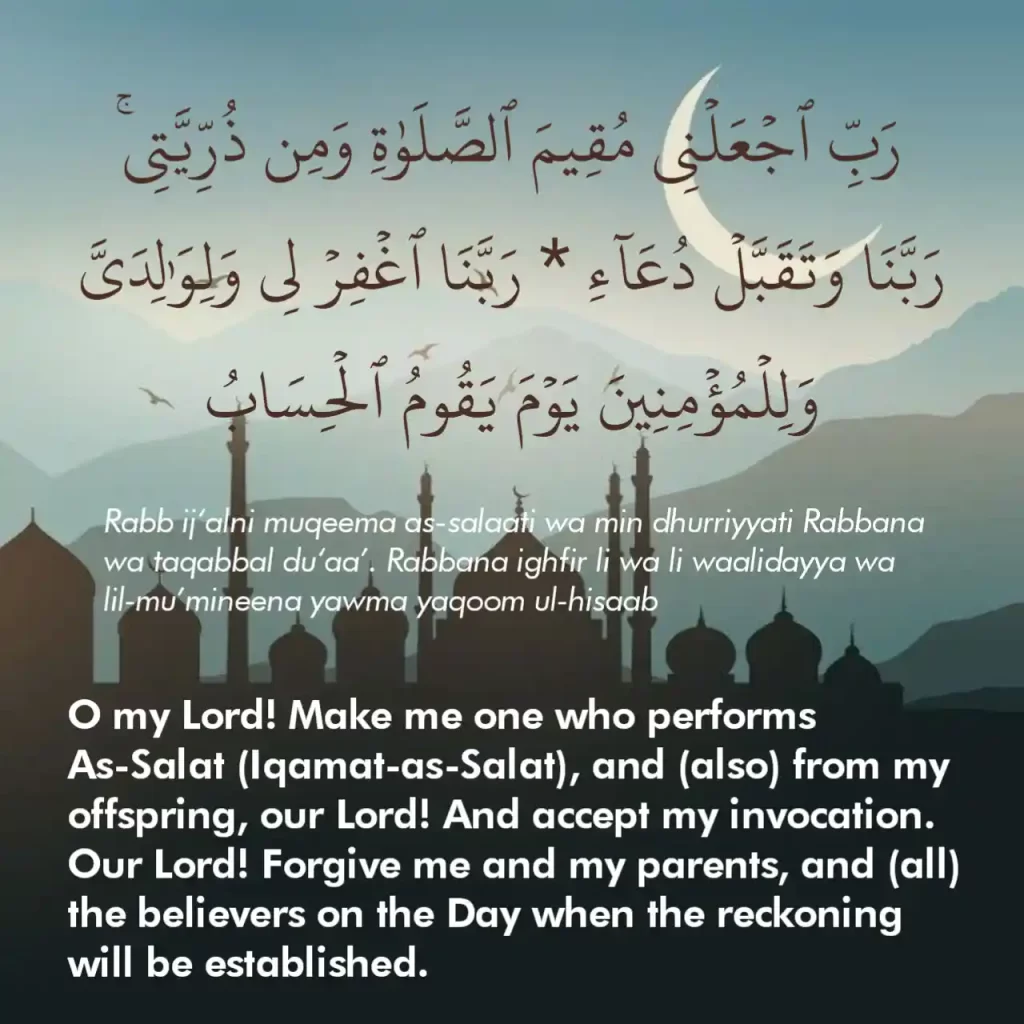
4. Dua
اللَّهُمَّ إِنَّكَ عَفُوٌّ كَرِيمٌ تُحِبُّ الْعَفْوَ فَاعْفُ عَنِّي
Transliteration
Allaahumma innaka ‘afuwwun tuhibb al-‘afwa fa’affu ‘anni
Meaning
O Allaah, You are forgiving and You love forgiveness, so forgive me.
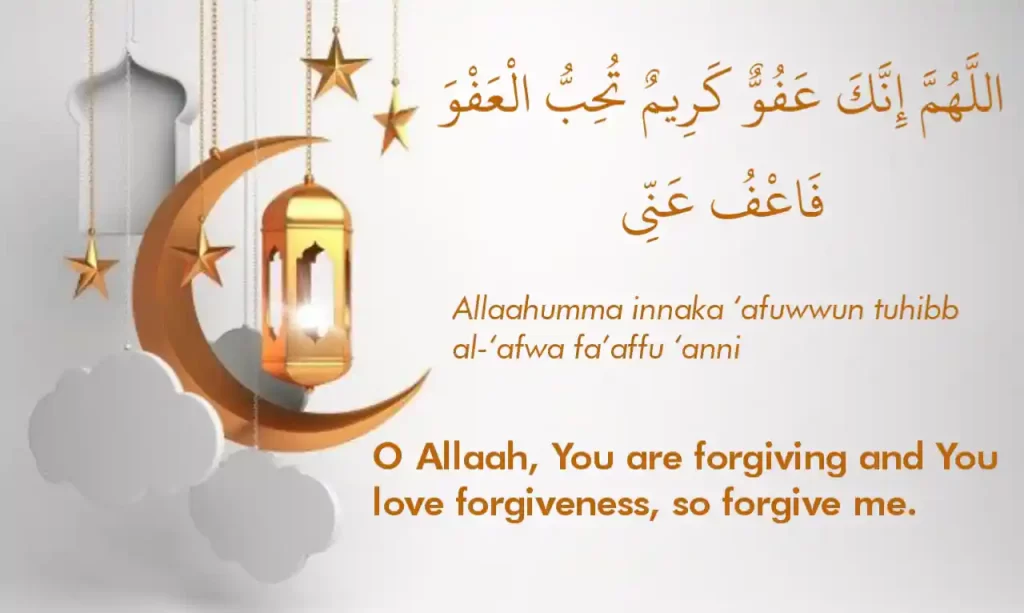
5. Dua
اللَّهُمَّ إِنِّي أَسْأَلُكَ مِنَ الْخَيْرِ كُلِّهِ عَاجِلِهِ وَآجِلِهِ مَا عَلِمْتُ مِنْهُ وَمَا لَمْ أَعْلَمْ وَأَعُوذُ بِكَ مِنَ الشَّرِّ كُلِّهِ عَاجِلِهِ وَآجِلِهِ مَا عَلِمْتُ مِنْهُ وَمَا لَمْ أَعْلَمْ اللَّهُمَّ إِنِّي أَسْأَلُكَ مِنْ خَيْرِ مَا سَأَلَكَ عَبْدُكَ وَنَبِيُّكَ وَأَعُوذُ بِكَ مِنْ شَرِّ مَا عَاذَ بِهِ عَبْدُكَ وَنَبِيُّكَ اللَّهُمَّ إِنِّي أَسْأَلُكَ الْجَنَّةَ وَمَا قَرَّبَ إِلَيْهَا مِنْ قَوْلٍ أَوْ عَمَلٍ وَأَعُوذُ بِكَ مِنَ النَّارِ وَمَا قَرَّبَ إِلَيْهَا مِنْ قَوْلٍ أَوْ عَمَلٍ وَأَسْأَلُكَ أَنْ تَجْعَلَ كُلَّ قَضَاءٍ قَضَيْتَهُ لِي خَيْرًا
Transliteration
Allaahumma inni as’aluka min al-khayri kullihi ‘aajilihi wa aajilihi, ma ‘alimtu minhu wa ma lam a‘lam, wa a‘oodhu bika min ash-sharri kullihi ‘aajilihi wa aajilihi, ma ‘alimtu minhu wa ma lam a‘lam.
Allahumma inni as’aluka min khayri ma sa’alaka ‘abduka wa nabiyyuka, wa a‘oodhu bika min sharri ma ‘aadha minhu ‘abduka wa nabiyyuka. Allahumma inni as’aluka al-jannata wa ma qarraba ilayha min qawlin aw ‘amal, wa a‘oodhu bika min an-naari wa ma qarraba ilayha min qawlin aw ‘amal, wa as’aluka an taj‘ala kulla qada’in qadaytahu li khayran
Meaning
O Allah, verily I ask you for all that is good in this world and the hereafter, what I know of it and what I do not know, and I seek refuge with You from all that is evil in this world and the hereafter, what I know of it and what I do not know.
O Allah, verily I ask You for the good of that which Your slave and Prophet asked of You, and I seek refuge with You from the evil of that from which Your slave and Prophet sought refuge with You.
O Allah, verily I ask you for Paradise and that which will bring me nearer to it of words and deeds, and I seek refuge with You from Hell and that which would bring me nearer to it of words and deeds. I ask You to make everything You decree for me good.
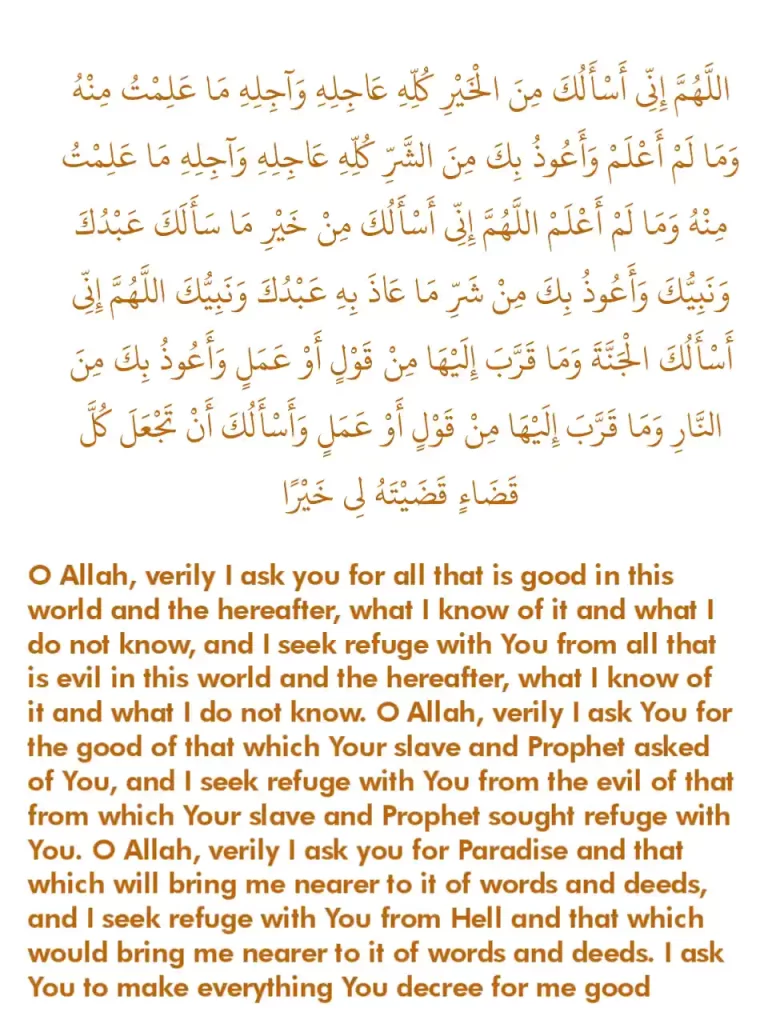
6. Dua
اللَّهُمَّ إِنِّي أَسْأَلُكَ الْعَافِيَةَ فِي الدُّنْيَا وَالآخِرَةِ، اللَّهُمَّ إِنِّي أَسْأَلُكَ الْعَفْوَ وَالْعَافِيَةَ: فِي دِينِي وَدُنْيَايَ وَأَهْلِي، وَمَالِي، اللَّهُمَّ اسْتُرْ عَوْرَاتِي، وَآمِنْ رَوْعَاتِي، اللَّهُمَّ احْفَظْنِي مِنْ بَينِ يَدَيَّ، وَمِنْ خَلْفِي، وَعَنْ يَمِينِي، وَعَنْ شِمَالِي، وَمِنْ فَوْقِي، وَأَعُوذُ بِعَظَمَتِكَ أَنْ أُغْتَالَ مِنْ تَحْتِي
Transliteration
Allahumma inni as’aluka al-‘aafiyata fi’d-dunya wa’l-aakhirah. Allahumma inni as’aluka al-‘afwa wa’l-‘aafiyata fi deeni wa dunyaaya wa ahli wa maali. Allahumma astur ‘awraati wa aamin raw‘aati. Allahumma ihfazni min bayna yadayya wa min khalfi wa ‘an yameeni wa ‘an shimaali, wa min fawqi, wa a‘oodhu bi ‘azamatika an ughtaala min tahti.
Meaning
O Allah, I ask You for pardon and well-being in my religious and worldly affairs, my family and my wealth. O Allah, conceal my faults and protect me from that which causes me to worry. O Allah, protect me from before me and from behind me, from my right and from my left, and from above me, and I seek refuge in Your greatness lest I be destroyed from beneath me.
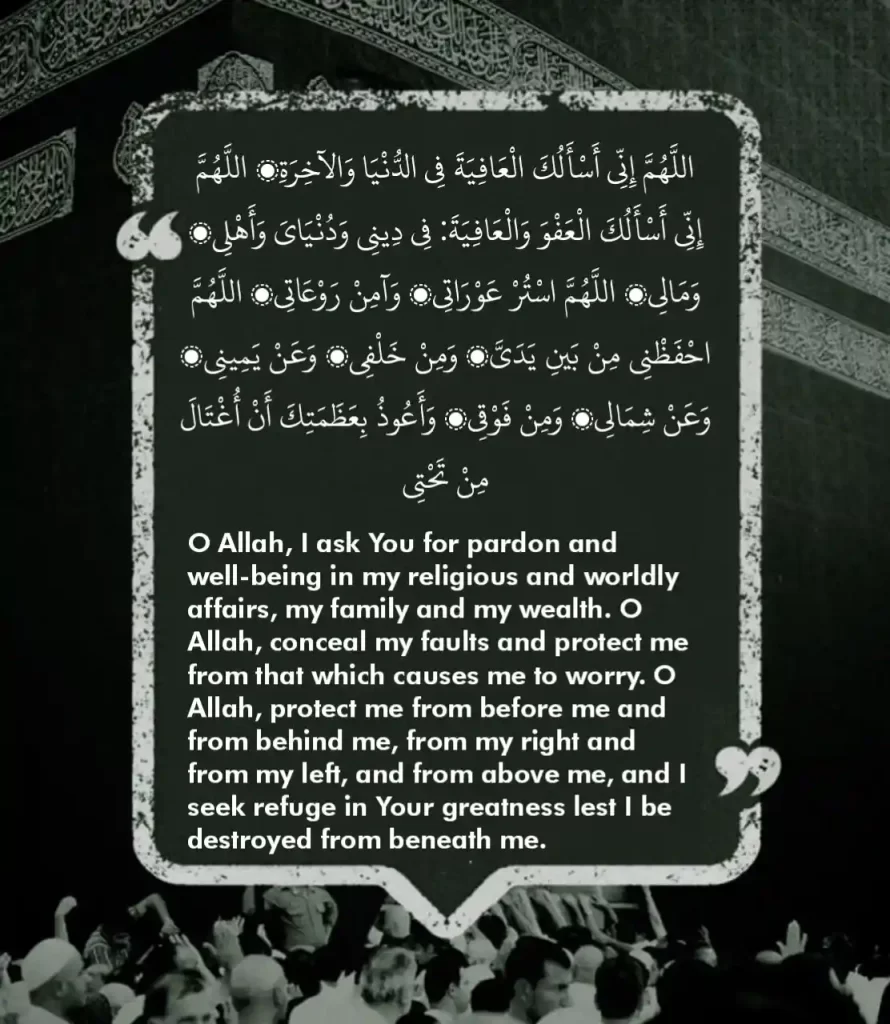
7. Dua
اللَّهُمَّ إِنِّي أَعُوذُ بِكَ مِنَ الْهَمِّ وَالْحَزَنِ، وَالْعَجْزِ وَالْكَسَلِ، وَالْبُخْلِ وَالْجُبْنِ، وَضَلَعِ الدَّيْنِ وَغَلَبَةِ الرِّجَالِ
Transliteration
Allaahumma ‘innee ‘a’oothu bika minal-hammi walhazani, wal’ajzi walkasali, walbukhli waljubni, wa dhala’id-dayni wa ghalabatir-rijaal
Meaning
O Allah, I seek refuge in you from grief and sadness, from weakness and from laziness, from miserliness and from cowardice, from being overcome by debt and overpowered by men (i .e . others)
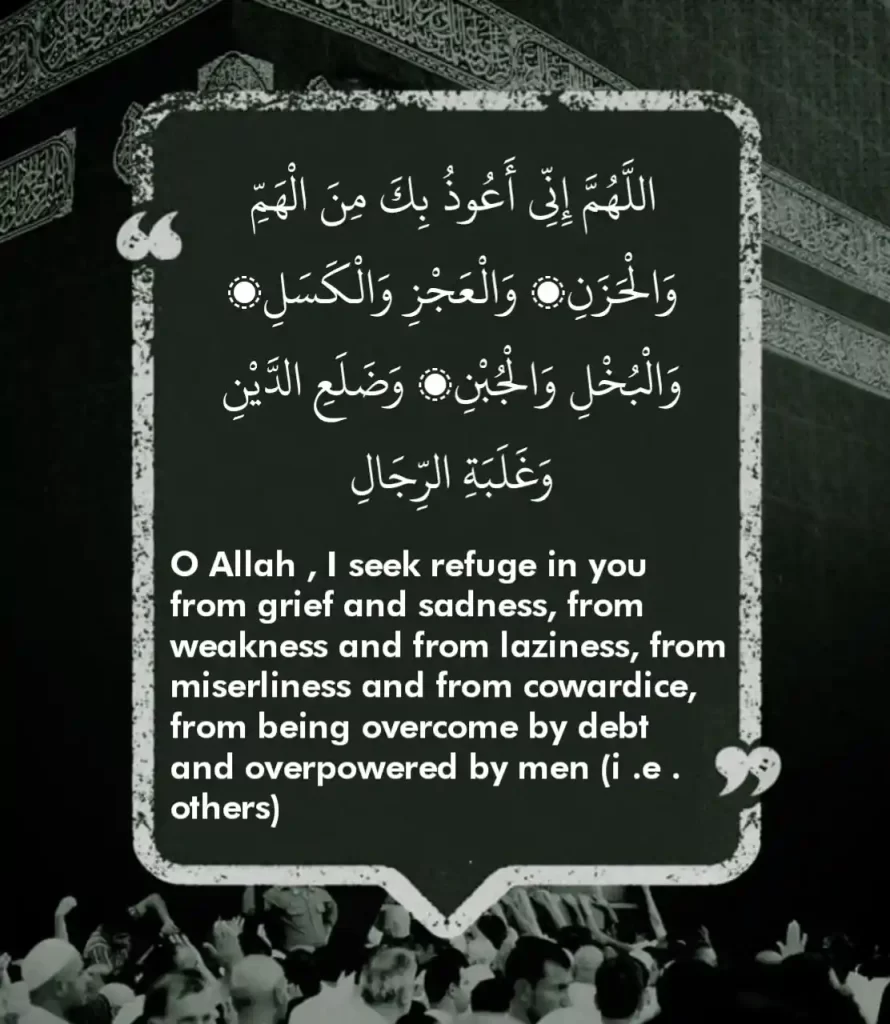
8. Dua
رَبَّنَا لَا تُزِغۡ قُلُوبَنَا بَعۡدَ إِذۡ هَدَيۡتَنَا وَهَبۡ لَنَا مِن لَّدُنكَ رَحۡمَةًۚ إِنَّكَ أَنتَ ٱلۡوَهَّابُ
Transliteration
Rabbana la tuzigh quloobana ba’da ith hadaytana wahab lana min ladunkarahmatan innaka anta alwahhab.
Meaning
Our Lord, let not our hearts deviate after You have guided us and grant us from Yourself mercy. Indeed, You are the Bestower.
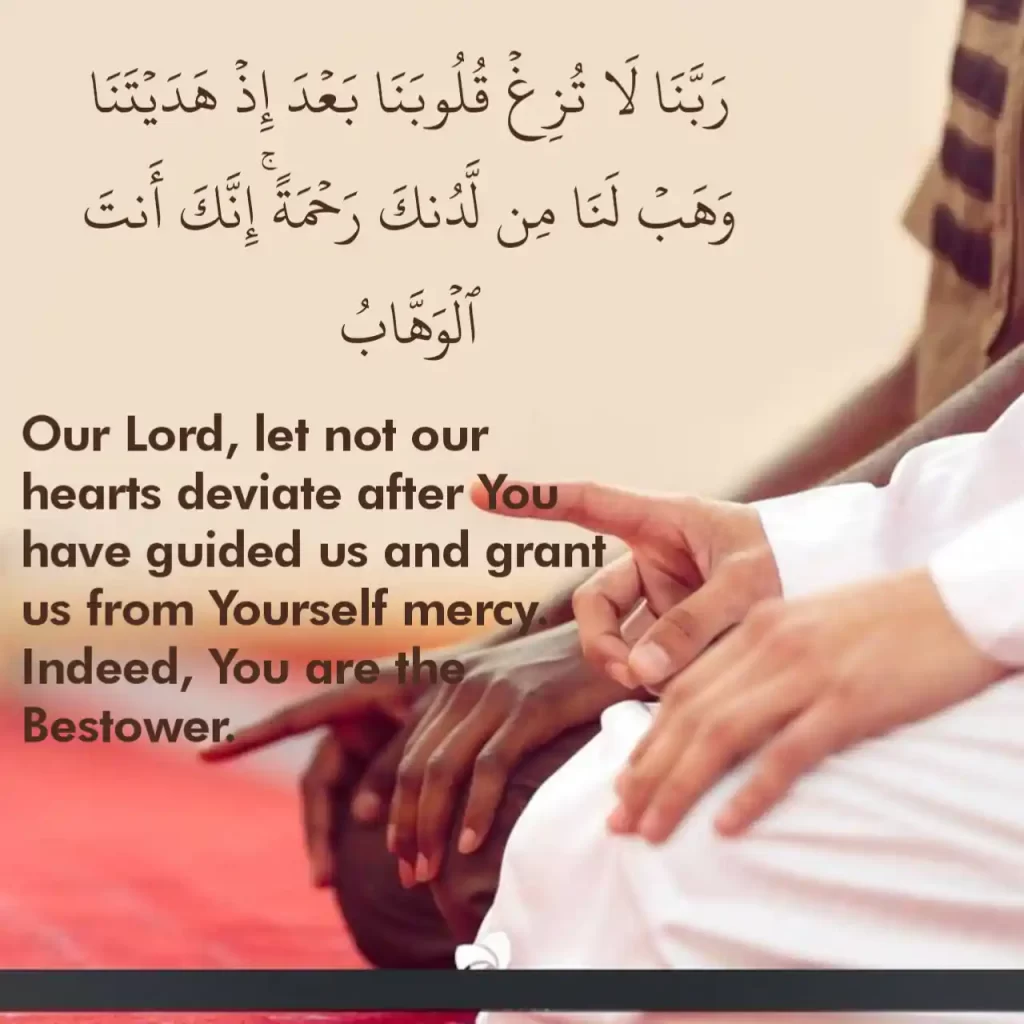
9. Dua
رَبِّ أَوۡزِعۡنِىٓ أَنۡ أَشۡكُرَ نِعۡمَتَكَ ٱلَّتِىٓ أَنۡعَمۡتَ عَلَىَّ وَعَلَىٰ وَٰلِدَىَّ وَأَنۡ أَعۡمَلَ صَٰلِحًا تَرۡضَىٰهُ وَأَدۡخِلۡنِى بِرَحۡمَتِكَ فِى عِبَادِكَ ٱلصَّٰلِحِينَ
Transliteration
Rabbi awzi’nee an ashkura ni’matakaal lazee an’amta alayya wa’ala walidayya waan a’mala salihantardahu waadkhilnee birahmatika fee ibadikaas saliheen.
Meaning
My Lord, enable me to be grateful for Your favor which You have bestowed upon me and upon my parents and to do righteousness of which You approve. And admit me by Your mercy into [the ranks of] Your righteous servants.
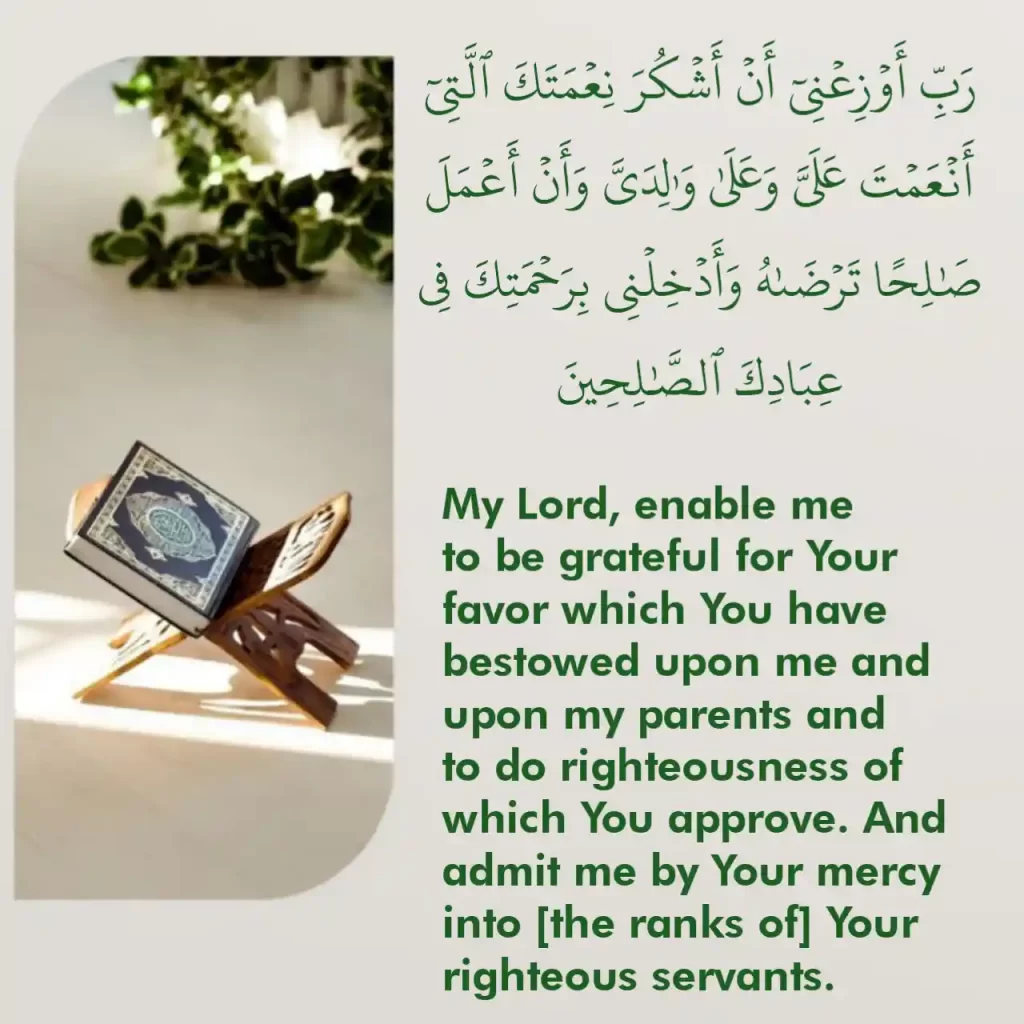
10. Dua
رَبِّ إِنِّى لِمَآ أَنزَلۡتَ إِلَىَّ مِنۡ خَيۡرٍ فَقِيرٌ
Transliteration
Rabbi innee lima anzalta ilayya min khayrin faqeer
Meaning
My Lord, indeed I am, for whatever good You would send down to me, in need.
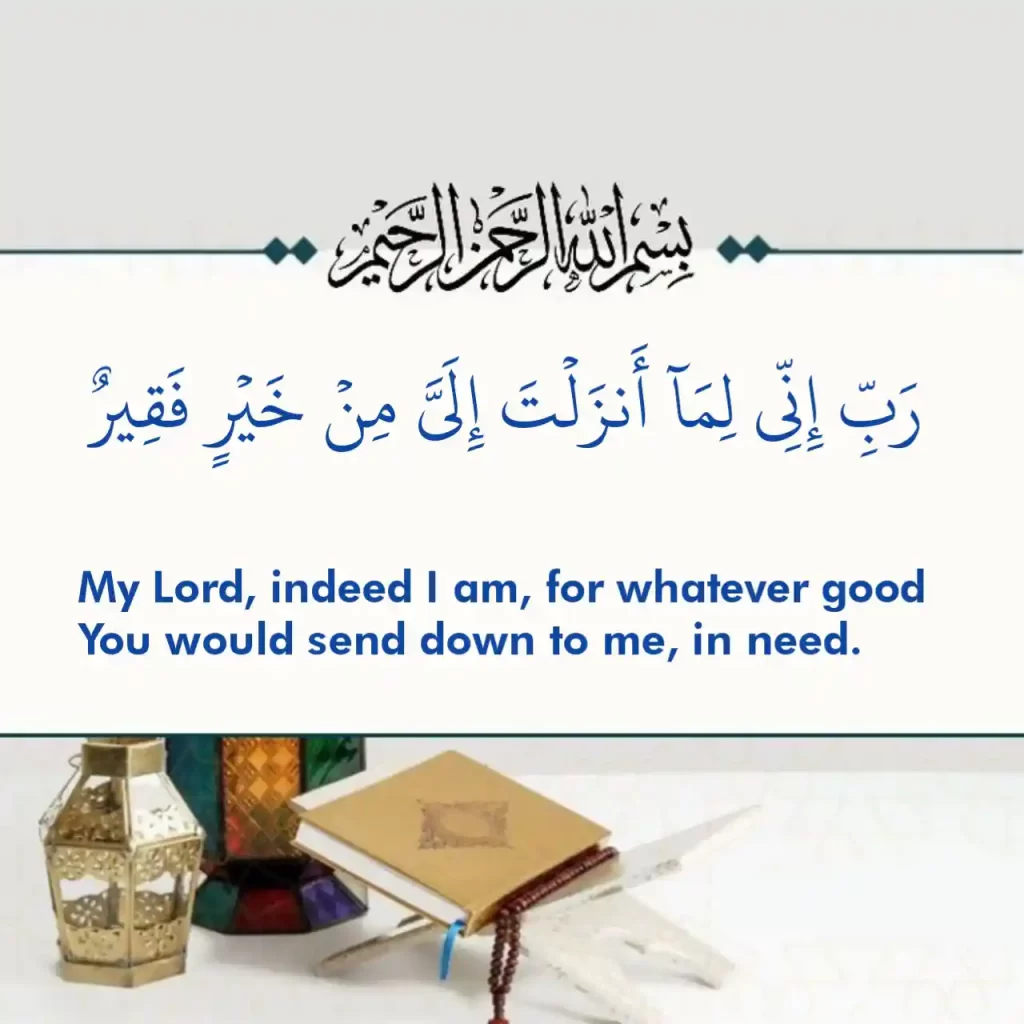
It is recommended to recite general du‘aa’s from the Qur’an and Sunnah, any du‘aa’ is good in which the individual strives hard, beseeching his Lord. None of that is limited to Ramadan only.
You should strive hard in du‘aa’ in the last third of the night in particular, every night.
It is mustahabb for the Muslim to remember Allah at all times and in all circumstances, as the Prophet (blessings and peace of Allah be upon him) used to combine dhikr and du‘aa’ in order to make the most of the days and nights of this month, especially the times at which supplication is more likely to be answered, such as the time before dawn, after ‘Asr on Fridays, and so on.
So he would ask Allah for Paradise and seek refuge with Him from Hell.
What is widespread in many chat rooms and social media websites, of specific adhkaar and du‘aa’s for each day of the month of Ramadan is all something that has been fabricated and made up by people.
These are nothing more than some adhkaar that have been selected and spread by some people, and many people think that this is a prescribed act of worship that is to be done in this blessed month, but in fact this is not part of the Sunnah and is not narrated in any hadith.
So the Muslim should be keen to recite the adhkaar of the morning and the evening, and the adhkaar that are to be recited following the prayers, and on other occasions as prescribed in Islam, and he should try hard to read the Holy Qur’an, study it, and reflect on its meanings, and that will suffice him, by Allah’s leave, and bring the reward that he seeks.
Advertisements

